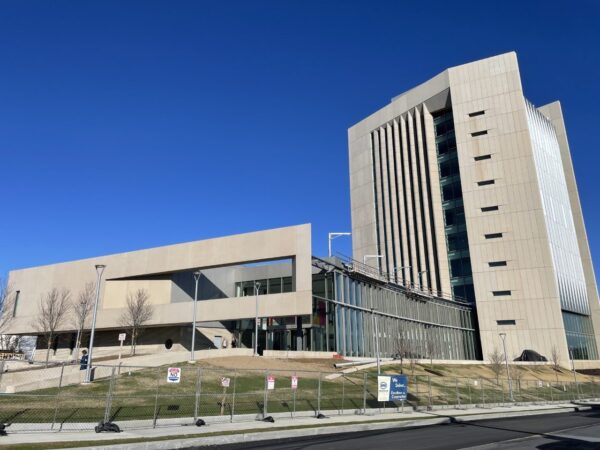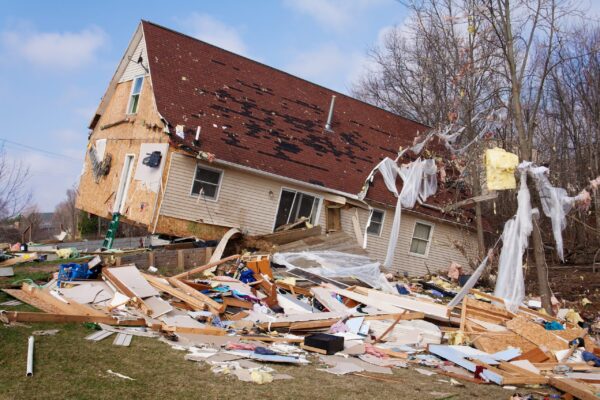

When a great flux of Cubans came to the Miami in the 60s, most of the emigrants settled in the area subsequently called Little Havana. Now, 50 years later, the neighborhood has evolved into a cultural hub for the city and those Cuban emigrants have aged into a large population of seniors. Given the influx of the Cuban population, the effects of the baby boom, and increased life expectancy throughout the U.S., there is currently a large and expanding population of elderly people in the Miami area. Senior service organizations, such as Little Havana Activities and Nutrition Centers of Dade County, Inc. (LHANC), have emerged to respond to the needs of the senior members of this metropolitan community.
LHANC provides a wide array of services to the seniors it supports at facilities in and around Miami. The nonprofit organization provides healthcare services and nutritious meals to seniors who are often living alone and below the poverty line. In addition, LHANC provides daycare services for children up to age five from low-income families. Some seniors in the program are offered the opportunity to help teach and take care of the children for extra income. Moreover, the centers help fulfill the cultural and social needs of the seniors they serve. The staff is bilingual for the convenience of the primarily Spanish-speaking community. Cards, bingo, and dominoes are several of the activities provided for the guests. Musicians and dancers periodically provide entertainment for the seniors, often with Cuban flare. Some diners have even been treated to a meal cooked by the Cuban celebrity chef, Chef Pepín!
Recently, Hill International provided LHANC with pro-bono services for renovations on one of its properties. The property that LHANC wanted to renew had several aged facilities, one of which was 75 years old, and a vacant lot. The organization planned for a new four-story building to better serve more seniors in the community. The construction process had begun with contract negotiations in the summer of 2015, but it quickly met unforeseen delays due to repricing and difficulties in negotiations. Hill attended a meeting in April of 2016 with LHANC to see if a partnership was appropriate.
José Amarante, one of Hill’s professionals who eventually worked on the job, describes the meeting: “They’re a nonprofit, funded with grants and donations and geared mostly towards low-income people. They clearly needed help, but it wasn’t feasible for them to pay the fees.” Thus, after the meeting, Hill decided to step into a pro-bono advisory role on behalf of LHANC, offering guidance to the organization and the project manager whom LHANC hired. With Hill on the team, construction officially began on June 1, 2016.
“For about a year and a half we provided guidance,” says José. “Things were working out pretty well. The client appreciated our broader vision and managerial experience, as their project manager was very much a technical expert. It’s not like we were ever competing with him in our discussions—we had no contractual interest in the project. We just wanted the organization and project to succeed.” At various nodal points in the construction, Hill attended project meetings to help the team make decisions. Finally after its initial delays, the project was beginning to make some progress.
As the project progressed, Hill’s support ramped up and became more technical. “We were really invested,” says José. Eventually, because Hill’s advice had become so invaluable, LHANC decided to hire Hill outright to help them carry the project to its conclusion. In February 2019, the new facility opened to the community. But there are still things to be done. José reports: “The most challenging parts of the project are over. But there are still transitional things for us to complete. We have to acquire some permits and demolish the old building.”
Even with work still to do, José reflects on a good job well done: “It was very fulfilling to help support the Little Havana Activities and Nutrition Centers. They do such important work. To see the smiles on the faces of the seniors hanging out in their new building, it was really inspiring. It was also an honor to do most of our work pro bono. And even the work we did for a fee served to save the organization money by minimizing risk, saving time, and completing the project the right way. All that money can now be funneled into good food and more activities for the seniors and children in this community.”
The multi-purpose facility has approximately 45,000 SF. It sports a clinic, a child-care center, a dining room and kitchen, an adult day-care center, an activities/multi-purpose room, offices, an outdoor children’s play area, and 120 at-grade parking spots. The facility was designed in accordance with the holistic services provided by LHANC on behalf of Miami’s seniors and children. But much more than the sum of its specific amenities, this facility represents the healthy growth of an excellent organization that positively impacts the lives of many thousands of people in the Miami area. Hill international was proud to help make this facility a reality and help LHANC do good for Little Havana.
Share

April 11, 2024 | Articles
A Model Move: Managing Move-In at the Sylvia H. Rambo U.S. Courthouse

April 8, 2024 | Articles

April 4, 2024 | Articles
Driving Growth and Seizing Opportunity: Lukasz Marcinkiewicz Joins Hill as Country Manager, Poland

April 1, 2024 | Articles

March 27, 2024 | Articles
Building the Future: Women’s Leadership and Community Engagement in the Construction Industry

March 25, 2024 | Articles
Leveraging Data Analytics and Dashboards for Enhanced Project Performance

February 26, 2024 | Articles
Continuity, Creativity, and Collaboration: Delivering PennDOT’s Route 18 Signal Upgrade
We and use cookies and other tracking technologies to improve your experience on our website. We may store and/or access information on a device and process personal data, such as your IP address and browsing data, for personalised advertising and content, advertising and content measurement, audience research and services development. Additionally, we may utilize precise geolocation data and identification through device scanning.
Please note that your consent will be valid across all our subdomains. You can change or withdraw your consent at any time by clicking the “Consent Preferences” button at the bottom of your screen. We respect your choices and are committed to providing you with a transparent and secure browsing experience.
| Cookie | Duration | Description |
|---|---|---|
| cookielawinfo-checbox-analytics | 11 months | This cookie is set by GDPR Cookie Consent plugin. The cookie is used to store the user consent for the cookies in the category "Analytics". |
| cookielawinfo-checbox-functional | 11 months | The cookie is set by GDPR cookie consent to record the user consent for the cookies in the category "Functional". |
| cookielawinfo-checbox-others | 11 months | This cookie is set by GDPR Cookie Consent plugin. The cookie is used to store the user consent for the cookies in the category "Other. |
| cookielawinfo-checkbox-necessary | 11 months | This cookie is set by GDPR Cookie Consent plugin. The cookies is used to store the user consent for the cookies in the category "Necessary". |
| cookielawinfo-checkbox-performance | 11 months | This cookie is set by GDPR Cookie Consent plugin. The cookie is used to store the user consent for the cookies in the category "Performance". |
| viewed_cookie_policy | 11 months | The cookie is set by the GDPR Cookie Consent plugin and is used to store whether or not user has consented to the use of cookies. It does not store any personal data. |


